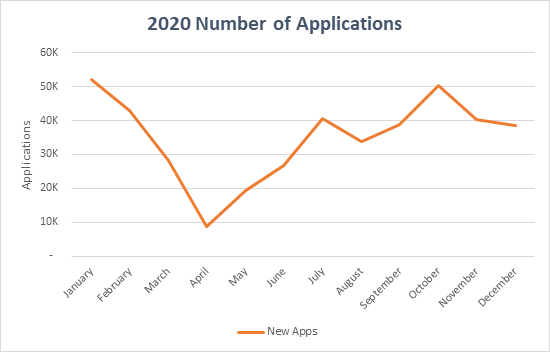The Digitization of International Credentials: How the pandemic is accelerating the future of credential evaluation

The emergence of COVID-19 accelerated the transition to a digital-first world at a pace no one could have anticipated. The rapid adoption of Zoom, the shift from in-person to virtual learning for millions of students at every level, and the inflated valuations of start-ups that offer remote conferencing are just a few indicators of how swiftly the world has changed. Under this virtual imperative, some organizations have managed to thrive, not just survive. Others have struggled. What factors have made the biggest difference?
As business leaders facing a world where the only certainty is change, we all need insight into how organizations achieve such rapid and necessary transformations.
My team and I are among those who have led an organization that has managed, against steep odds, to thrive. World Education Services (WES) is a non-profit social enterprise which annually provides hundreds of thousands of individuals from around the world with credential evaluation reports that allow them to pursue their academic, workplace, and immigration goals in the United States and Canada. In March and April 2020, as the scope of the pandemic became clear, global mobility and global business operations were significantly disrupted. Applications for WES credential evaluations fell as everyone in the world collectively sought to understand how the virus affected them, and as campuses and education ministries suspended all in-person work.
And yet, as of mid-2020, WES had largely recovered. This recovery continued trending upward through the end of the year.

What caused this? For one, people realized that their desire to study, immigrate, and pursue more challenging professional opportunities remained unchanged in the face of the pandemic. Plus, the back-office operations at most academic institutions and government offices picked up their work. Global delivery services, while hobbled, became more and more agile. But what made the real difference went beyond all these factors.
What made the difference for WES was an evolution to digitizing our credential evaluation practices.
The digitization process is a fast, efficient, cost-effective, and environmentally friendly way to receive and access documents; it also offers more security and enables better fraud detection. Our shift to digitization has yielded significant results: At the end of 2020, WES received 65 percent of all supporting credential evaluation documents digitally, up from only 7 percent in 2019.
By embracing digitization, we focused on building core strengths: agility, responsiveness, relationships, and careful analysis of data about our customers’ needs and behaviors. Meanwhile, we leveraged our archival database and workflow technologies in new ways to ensure that we maintained our high standards in credential evaluation. Maintaining our quality standards was crucial. The reliability of our reports is what enables our applicants to pursue their academic and professional goals with confidence.
However, for WES to accommodate digitization, the documents we receive from institutions must be digitized. So, to further our digitization efforts, we looked to partner and develop relationships with higher education institutions around the world. The way we responded externally tracks with the findings of a July 2020 Harvard Business Review Analytic Services survey of 527 global executives’ response to COVID-19. The authors of a report based on the survey, Reevaluating Digital Transformation During Covid-19: Why Leading Companies Are Focusing on Operational Agility, note key factors that put organizations in the “position of finding [digital] transformation success before and after Covid-19 struck.” One such factor is what is known as rapid-cycle innovation, which involves activating stakeholders outside of IT departments and empowering them “to support new business workflows” within their organizations.
Our work on this strategy, when relationship building with institutions, involves providing multiple platform options that enable institutions to transfer documents safely and securely; each platform requires a different level of onboarding by institutions, so that they can select the option that works best for them. WES remains open to new suggestions and approaches. While we have specific standards and technology requirements, we work with different transmission channels if the source is trusted and authorized to issue official, authentic documents. Our work has shown significant results. In India, for example, 79 percent of the applications we received from institutions with which we had established a digital partnership.
We are also communicating directly with students at these institutions about the many advantages of using digitized credentials. WES has begun to closely coordinate with globally mobile graduates of institutions around the world to better understand potential roadblocks to using digitized credentials. These conversations mobilize students and alumni to call for the implementation of digitization at their institution; they also allow us to identify common questions and concerns about digitized credentials, enabling us to be ready to address those concerns in other places with other students.
The pandemic has required organizations across sectors and industries to evaluate their operational practices in response to this set of unprecedented circumstances.
For WES, the urgency the moment has demanded, while certainly challenging, enabled us to accelerate our adoption of technologically advanced operational practices and affirm our leadership in the field of international credential evaluation.
While this evolution demonstrates WES’ capacity as a business to be both adaptive and responsive, WES’ commitment to expanding digitization is first and foremost motivated by the organization’s mission. By supporting digitization efforts, we provide international students and immigrants with greater agency to leverage their credentials, experience, and education, and we work toward creating a world in which immigrants face fewer barriers to their pursuit of work and international education. As the WES mission statement puts it: We help people learn, work, and thrive in new places. We help society recognize the value of people’s education and experience.
Esther Benjamin is CEO and Executive Director of World Education Services (WES), a non-profit social enterprise dedicated to helping international students, immigrants, and refugees achieve their educational and career goals in the U.S. and Canada. www.wes.org
